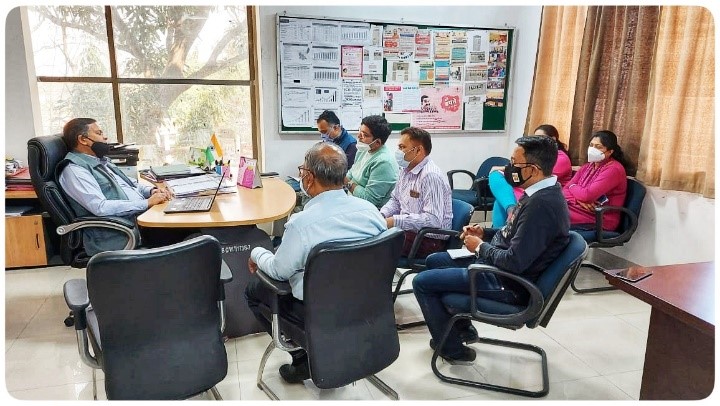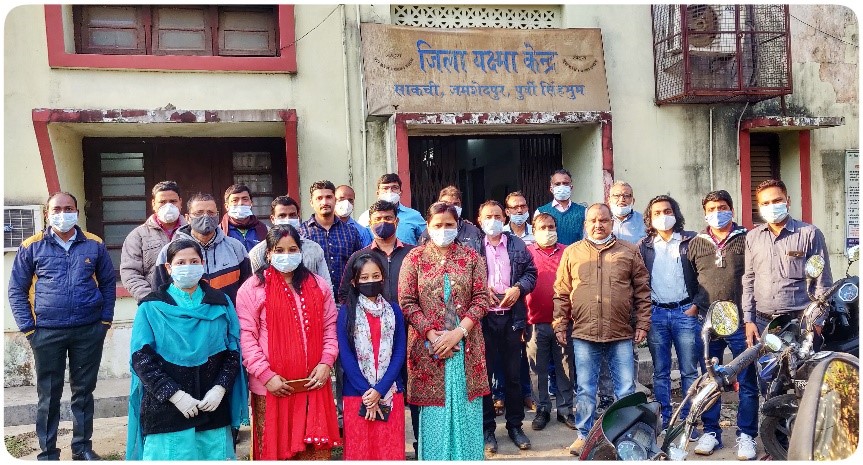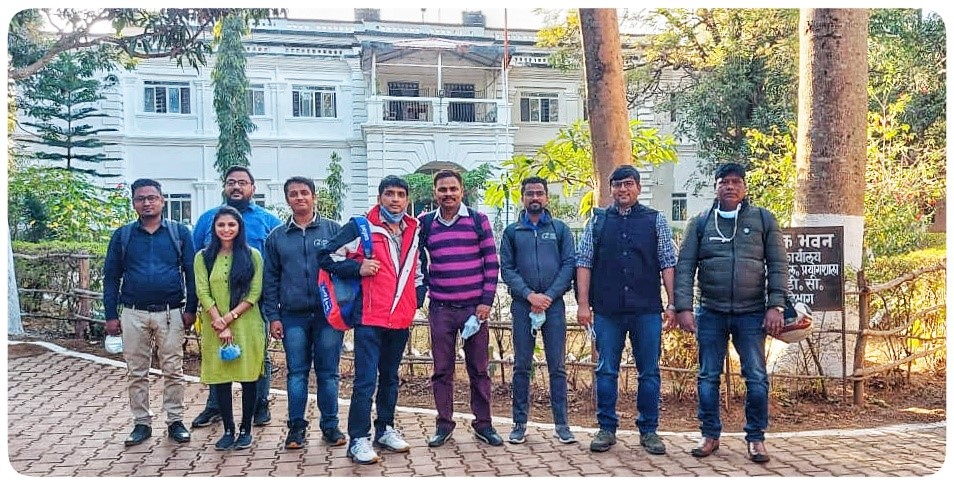Closing the Gaps in TB Care Cascade (Supported by USAID)
In India, out of an estimated 2.84 million new TB cases, 68% got tested for TB, 57% were diagnosed, 50% began treatment, 43% finished their treatment, and 37% were cured without the disease coming back after a year. For drug-resistant TB (MDR-TB), out of 130,000 cases in 2013, 47% got tested, 19% were diagnosed with MDR-TB, 15% started treatment for it, 7% were successfully treated, and 5% were cured without recurrence.
The cascade of care is a way to check how the TB program is doing and to find ways to get better at finding TB cases, diagnosing them, connecting people to free treatment, helping them stick to their medication, and preventing the disease from coming back.
This project aimed to strengthen district health systems in their ability to comprehensively monitor and respond to the TB care cascade with quality improvement (QI) interventions.
Objectives:
- Identify cascade care leakages to evaluate outcomes across the various stages of patient engagement with the health system. (Baseline assessment)
- Implement multi-component and targeted interventions to address dropouts in care cascade; demonstrate patient and population-level impact that can be scaled (QI Interventions)
- Optimize workflows to coordinate the care cascade; motivate and build district capacity to continuously monitor and drive quality improvement (QI) initiatives. (Hand holding of the districts through Ni-kshay SETU and resources)
Project Outcomes (Demonstration of interventions across TB care cascade)
- Baseline Survey of 1000+ Persons with TB and 100+ Health care providers to identify the TB Care Cascade Delays.
Frontiers | Why and where?—Delay in Tuberculosis care cascade: A cross-sectional assessment in two Indian states, Jharkhand, Gujarat (frontiersin.org)
TropicalMed | Free Full-Text | Gaps and Interventions across the Diagnostic Care Cascade of TB Patients at the Level of Patient, Community and Health System: A Qualitative Review of the Literature (mdpi.com)
Exploring private sector perspectives on barriers and facilitators in availing tuberculosis care cascade services: a qualitative study from the Indian state | BMC Primary Care | Full Text (biomedcentral.com)
Infectious Disease Reports | Free Full-Text | Health-Related Quality of Life (HRQoL) of Patients with Tuberculosis: A Review (mdpi.com) - Development of the e-Learning mHealth Application named: Ni-kshay SETU
Journal of Medical Internet Research – Capacity Building, Knowledge Enhancement, and Consultative Processes for Development of a Digital Tool (Ni-kshay SETU) to Support the Management of Patients with Tuberculosis: Exploratory Qualitative Study (jmir.org)
Cureus | Bridging the Gap: A Strategic Approach to Upscale Knowledge Among Diverse Healthcare Providers for Effective Tuberculosis Management in Gujarat, India | Article
Ni-kshay Setu: Mobile application comes in handy for healthcare workers as India chases target to reduce tuberculosis burden by 2025, ET HealthWorld (indiatimes.com) - Deployment of operational research and feasibility assessment with evidence generation to establish TB Death Surveillance and Response System
Deaths among tuberculosis patients of the western state of India: A secondary record based analytical study on its determinants – ScienceDirect
A step up to end tuberculosis: Lessons from a community-based death review of patients with tuberculosis from western India – Clinical Epidemiology and Global Health (cegh.net) - Demonstration of Quality Interventions across various geography and empowering of the state / district health team to sustain and replicate in wider geography. (Attached)
Post-Treatment Follow-up of Persons with TB and Ni-kshay Module Development
Improving TB diagnosis services through iSmart Intervention (iSmart- Artificial Intelligence & Smart X-ray Report)
Strengthening Adherence Monitoring Mechanism for TB Treatment: Field Experience
End Treatment Assessment & Pulmonary Rehabilitation (ETA-PR)
Differentiated TB Care Management (A comprehensive package of clinical, radiological, and pathological services to reduce preventable morbidity and mortality among TB patients)
Addressing mental health issues and substance use disorder among patients with tuberculosis.
- Baseline Survey of 1000+ Persons with TB and 100+ Health care providers to identify the TB Care Cascade Delays.
Post-Treatment Follow-up of Persons with TB and Ni-kshay Module Development
Strengthening Adherence Monitoring Mechanism for TB Treatment: Field Experiences
End Treatment Assessment & Pulmonary Rehabilitation (ETA-PR)
Addressing mental health issues and substance use disorder among patients with tuberculosis.











